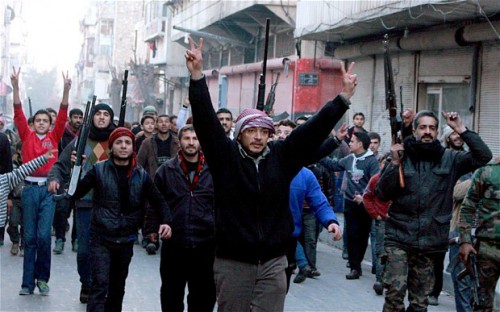21st January 2015
Our Common Agenda
The headlines have been full of conflict and argument about extremism and fanaticism. Yet there is a paradox in the debate. On the one hand “We Are All Charlie” and “We Are All Moath”. But on the other there is a perception of conflict between “The West” and Islam.
Language which emphasises “jihad” or “crusade” suggests that there is a religious battle. But that diverts the debate away from the fact that we face a common agenda starting with a common threat from terrorism.
Daesh poses a global threat to all peace-loving people. They make no distinction between religions, cultures or countries. Their actions are brutal and barbaric: beheadings, crucifixions, slaughter of children and enslavement of women.
Despite Daesh’s attempts to claim religious legitimacy to justify these atrocities, the response of respected scholars and reaction of ordinary people make clear that they reject any suggestion that Daesh represents them or their religion. The best way to undermine Daesh’s narrative is from within the Muslim world.
We also face a common problem of “foreign fighters”: the vulnerable people that Daesh is seducing into joining their cult. Young people from the UK and other European countries are travelling to Syria and Iraq. On return they pose a major threat to our security.
Jordan faces the same problem. The motives of these fighters are seldom ideological. They are people who feel marginalised, disaffected and angry. They perhaps hanker after a sense of identity by belonging to an organisation that seems to espouse values that appear superficially attractive. But they are being sucked into a nest of vipers that demands unswerving loyalty and imposes harsh punishments on dissent.

Each country has to tackle this common problem in its own way. In the UK we have banned preachers who incite hatred or terrorism in schools and universities and cracked down on abuse of charities. New laws enable the authorities to seize passports to stop would-be fighters travelling from the UK, and to prosecute acts of terror committed anywhere in the world.
We also have a common duty to work together to support the victims of conflict. The humanitarian crisis created by 4 years of conflict in Syria has reached catastrophic proportions. The UN estimates that over 12 million people are in dire need of help inside Syria. Around 7.6 million Syrians have been forced to flee their homes and there are now over 3.3 million refugees in neighbouring countries.
The international community must help the Syrians. We must also help the countries that have so generously taken them in. The UK is a major donor to the organisations who are trying to alleviate this suffering. We have contributed over $1 billion to the effort so far, the largest response ever to a humanitarian crisis.
This funding is providing people in need across Syria and the region with food, fresh water, healthcare, shelter and basic services. It is also helping the communities in Jordan whose services and infrastructure have been affected, for example by providing additional money for municipalities and education.
The horror we see on our screens on a daily basis creates a common agenda for everyone who values peace, justice, freedom and the rule of law. The impact of Daesh’s actions on our common security, stability and prosperity means that we have to work together to counter it.
We share a common need for tolerance and the pursuit of dignity. We must together oppose bigotry and fanaticism. Above all, we have to avoid an “Us and Them” mentality. That means we should underline our common values and oppose those who seek to undermine them. We can all work together for the common good.